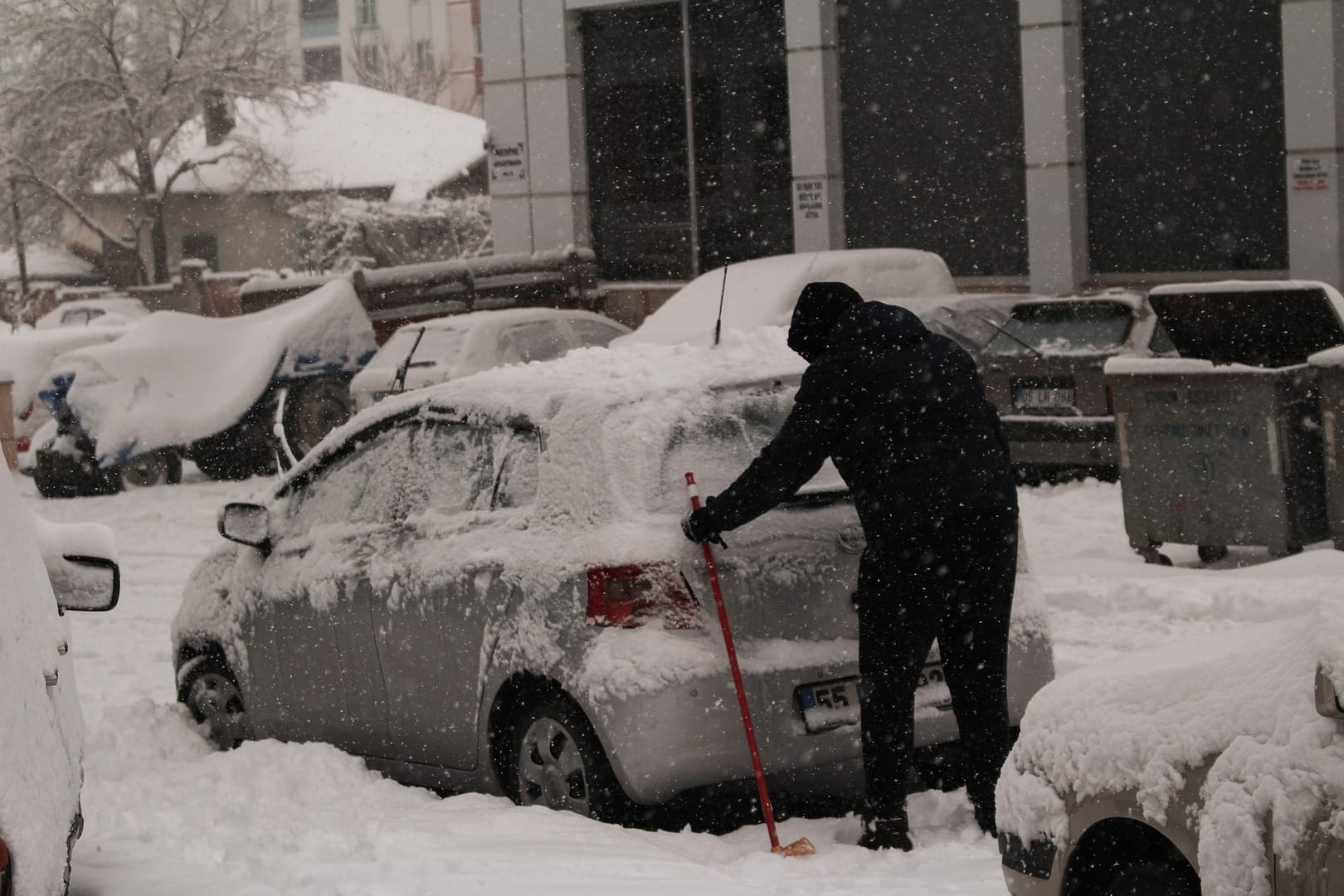As the colder months settle in, the workplace can become a challenging environment to navigate safely. Cold weather not only poses risks to your health but also affects your ability to perform tasks efficiently. It’s essential to take precautions and be prepared for the winter season while on the job. In this article, we will explore the Health and Safety Executive (HSE) guidance on working in cold weather and share valuable tips to help you stay safe at work during the colder months. We will also lay out the best steps to take when making an accident at work claim.
Understanding HSE Guidance
The Health and Safety Executive (HSE) in the United Kingdom provides vital guidance on working in cold weather. This guidance is designed to ensure that employers and employees alike understand the risks associated with working in low temperatures and take appropriate measures to mitigate them.
Recognising the Risks
Before we delve into the specifics of staying safe at work during colder months, let’s understand the risks involved. Cold weather can have several adverse effects on your body and working conditions. It can lead to frostbite, hypothermia, and an increased risk of accidents due to slippery surfaces.
Staying Safe at Work During Winter
Now that we’ve established the potential dangers of working in cold weather, let’s explore how to stay safe at work during the colder months.
Dress Appropriately
One of the fundamental aspects of staying safe in the cold is dressing appropriately. Layering your clothing is key. Start with a moisture-wicking base layer to keep sweat away from your body, followed by an insulating layer for warmth, and finish with a waterproof and windproof outer layer to protect against the elements. Don’t forget a good pair of insulated boots and thermal gloves.
Keep Moving
During colder months, it’s crucial to stay active to maintain your body’s warmth. If your job involves sitting for extended periods, take regular breaks to stretch and move around. This helps improve blood circulation and keeps you from getting too cold.
Stay Hydrated and Nourished
Proper nutrition and hydration are vital for staying warm in cold conditions. Eat balanced meals that provide you with energy and warmth. Drinking warm beverages can also help maintain your body temperature. Avoid excessive caffeine, as it can lead to dehydration.
Be Aware of Slippery Surfaces
Slippery surfaces are a significant hazard during colder months. Ice and snow can make walkways treacherous. To stay safe, be cautious while walking and consider wearing non-slip footwear. Employers should also take responsibility for clearing paths and applying salt or sand to icy areas.
Understand the Signs of Cold-Related Illnesses
Recognizing the symptoms of cold-related illnesses like frostbite and hypothermia is crucial. Early detection can prevent these conditions from worsening. Symptoms of frostbite include numbness, tingling, and skin discoloration, while hypothermia may manifest as shivering, confusion, and drowsiness. If you or a colleague exhibit these symptoms, seek immediate medical attention.
Use Adequate Lighting
As the days get shorter, visibility at the workplace can be reduced. Proper lighting is essential to avoid accidents. Make sure your work area is well-lit, and if necessary, use additional lighting sources to improve visibility.
Follow Safety Procedures
Adhering to safety procedures becomes even more critical during the colder months. This includes wearing personal protective equipment (PPE) as required, following safe work practices, and reporting any hazards or unsafe conditions promptly.
Take Breaks in Warm Environments
Whenever possible, take your breaks in warm environments. This allows your body to recover from the cold and helps prevent cold-related illnesses. If your workplace doesn’t have a heated break area, consider investing in portable heaters or warm shelters.
Communicate Effectively
Good communication is key to ensuring everyone’s safety at work during colder months. Keep your colleagues informed about any hazards or issues you encounter. Effective communication can prevent accidents and ensure that everyone is prepared for the challenges of cold weather.
Plan for Emergencies
No matter how well-prepared you are, emergencies can still happen. It’s essential to have a plan in place for handling emergencies during the colder months. This includes knowing the location of emergency exits, fire extinguishers, and first-aid kits.
Know Your Rights
Employees have rights when it comes to working in cold weather conditions. Employers are obligated to provide a safe working environment, which includes taking measures to protect employees from cold-related hazards. If you feel that your safety is being compromised, don’t hesitate to voice your concerns to your employer or the relevant authorities.

Making an Accident at Work Claim
Despite taking all necessary precautions, accidents can still occur in the workplace, especially during the colder months when hazards are more prevalent. In such cases, it’s important to understand your rights and options, including making an accident at work claim.
Assess the Situation
If you’ve been injured at work due to a cold-related accident, the first step is to assess the situation. Seek immediate medical attention if necessary and report the incident to your employer. It’s essential to document the details of the accident, including any witnesses and the circumstances leading up to the incident.
Consult with National Claims
Making an accident at work claim can be a complex process. It’s best to consult with us at National Claims, where we specialise in workplace injury cases. Our claims specialists can provide guidance on the best course of action and help you understand your rights and entitlements as well as the claims process.
Gather Evidence
To support your claim, gather all relevant evidence, including medical records, witness statements, and photographs of the accident scene. This evidence will be crucial in demonstrating that the accident was a result of unsafe working conditions or negligence on the part of your employer.
File a Claim
Once you’ve consulted with National Claims and gathered the necessary evidence, you can proceed to file a claim. We will guide you through the process, ensuring that all required documents are submitted correctly and within the specified timeframes.
Seek Compensation
If your claim is successful, you may be entitled to compensation for your injuries, medical expenses, lost wages, and pain and suffering. Compensation can provide financial support during your recovery and help alleviate the impact of the accident on your life.
Conclusion
Working in colder months presents its own set of challenges, but with the right precautions and awareness, you can stay safe on the job. By following the guidance provided by the Health and Safety Executive (HSE) and implementing practical safety measures, you can minimise the risks associated with cold weather. Remember to dress appropriately, stay active, and be vigilant about slippery surfaces. Recognise the signs of cold-related illnesses and communicate effectively with your colleagues.
In case of accidents, know your rights and consider making an accident at work claim to seek compensation for your injuries. By taking these steps, you can ensure a safe and productive winter season at work.
Contact us to start your claim and learn more about how we at National Claims deal with accidents at work.
Click below to see why we are one of the most trusted claims management companies in the UK.
Stay warm and stay safe!

We’re proud of our excellent customer reviews
We thrive on delivering exceptional service and ensuring our clients’ satisfaction. Don’t just take our word for it. Check out some of our independent reviews to see what our clients have to say.
Excellent

This firm is excellent, they sorted out my car pay out and injury claim very fast, they always communicate with you all the time.

My accident case was dealt with confidence and with great result of the outcome, especially James kept me informed all the time.

I was very impressed at the way my inquiry was treated. I was listened to attentively and everything I needed to know was explained to me.






